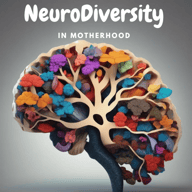The 5 Most Effective Therapies for Mothers with Neurodivergent Children


Title: The 5 Most Effective Therapies for Mothers in the Motherhood of Neurodivergent Children.
Motherhood can be an extraordinary and challenging journey, especially for us mothers raising neurodivergent children; our motherhood challenges can significantly impact our mental and emotional health. This makes it essential to know when to seek therapies that provide specialised support.
Cognitive Behavioral Therapy (CBT)
Cognitive Behavioral Therapy is a good option for treatment for mothers facing the challenges of raising neurodivergent children. The CBT approach equips the mothers with the tools to apply daily to identify and modify negative thought patterns and dysfunctional behaviours, offering practical skills for navigating everyday challenges.
Scientific Evidence: Studies have shown that CBT effectively reduces stress and anxiety symptoms, improving overall mental health (Hofmann et al., 2012). CBT can be a source of relief for mothers, helping them cope with the guilt and anxiety that often accompany caring for children with special needs.
Acceptance and Commitment Therapy (ACT)
Acceptance and Commitment Therapy (ACT) emphasises accepting emotions, identifying personal values, and promoting actions aligned with those values. ACT empowers mothers to take their emotional experiences rather than struggle against them while committing to living according to their values.
Scientific Evidence: Research has shown that ACT can help reduce anxiety and depression and improve psychological well-being (Hayes et al., 2006). For mothers of neurodivergent children, ACT provides a safe space to explore their emotions related to motherhood and promotes conscious self-self-care and self-care.
Family Therapy.
The main focus of family therapy is the family's journey, which includes unity and understanding of family members and family dynamics. When family therapy is effective, it promotes family relationships by providing a safe space for members to share their experiences and concerns, fostering improved communication and family conflict.
Scientific Evidence: Studies indicate that family therapy can significantly improve family functioning and the mental health of family members (Carr, 2009). Mothers can find solace in this therapy, which addresses family dynamics related to raising neurodivergent children and fosters a healthier, more collaborative environment.
Mindfulness and Mindfulness-Based Therapy
Mindfulness practices and mindfulness-based therapy promote greater awareness of the present moment and help reduce stress and anxiety. These approaches benefit mothers, especially those facing the daily stress of caring for neurodivergent children or mothers who are neurodivergent themselves.
Scientific Evidence: Mindfulness interventions can significantly reduce stress and improve mental health (Kabat-Zinn, 1990). The learned techniques become tools which help mothers become more resilient in the face of difficulties, fostering an attitude of acceptance and self-care.
Occupational Therapy (OT)
Occupational therapy (OT) is an approach that focuses on helping people perform daily activities more effectively. For mothers of neurodivergent children, OT can be particularly valuable, as it can teach adaptive coping strategies to handle daily challenges and improve family dynamics. OT can be extremely helpful for depressed or neurodivergent mothers who need support and strategies for the challenges of motherhood.
Scientific Evidence: Studies indicate that OT can improve functionality and quality of life for neurodivergent children and, consequently, alleviate caregiver stress (Cohn et al., 2013). OT in motherhood helps mothers apply therapeutic activities that benefit their children's lives and themselves, promoting a more harmonious family environment.
Conclusion:
Motherhood is a journey full of emotions, such as unconditional love, joy, surprises, worries, and fear. In many cases, it can be a challenging journey filled with complexity, especially for mothers raising neurodivergent children.
The therapies mentioned in this article are effective in preventing mental health burnout and promoting mental health and well-being among mothers. Effective therapy can provide essential support during a very stressful time. However, it is important to remember that self-compassion, self-acceptance, self-care, and valuing yourself as a person and mother are reasonable steps to improve your mental well-being.
My dear mum, the best step to take at the time is to seek professional support; each mother should consider what works best for them and not hesitate to seek professional help whenever necessary. Remember, your well-being is crucial for the well-being of your children and family.
Referência:
1. Beck, A. T., & Dozois, D. J. A. (2011). Cognitive therapy: Current status and future directions. Annual Review of Medicine, 62, 397–409. doi:10.1146/annurev-med-052209-100032.
2. Beck, J. S. (2011). Cognitive behaviour therapy: Basics and beyond. Guilford Press.
3. Hofmann, S. G., Asnaani, A., Vonk, I. J. J., Sawyer, A. T., & Fang, A. (2012). The efficacy of cognitive behavioural therapy: A review of meta-analyses. Cognitive Therapy and Research, 36(5), 427-440. doi:10.1007/s10608-012-9476-1
